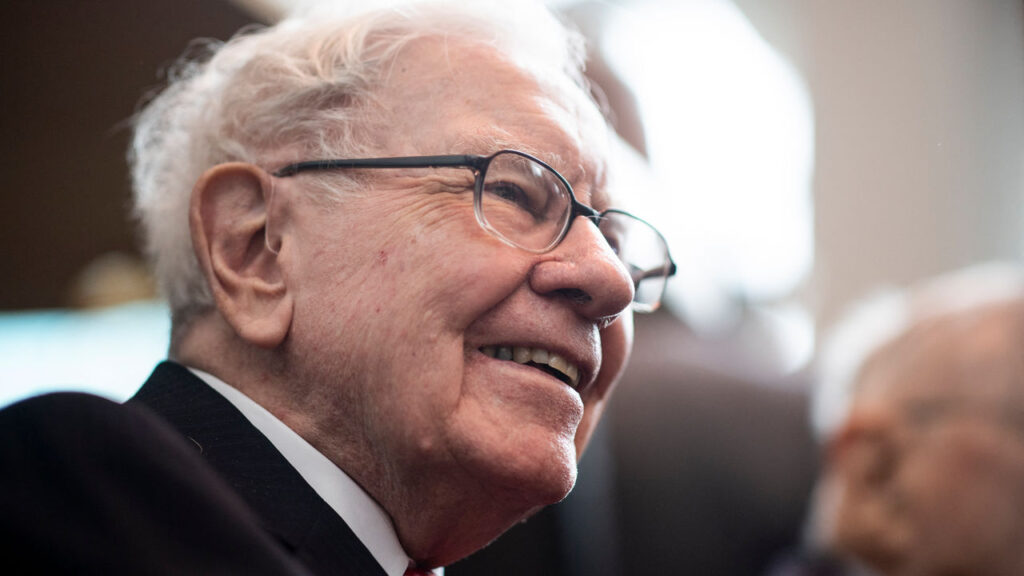Surprising people at the age of 94 is a remarkable achievement, and Warren Buffett has managed to retain this extraordinary capacity even in his advanced years. As one of the world’s most successful investors and the CEO of Berkshire Hathaway, his announcements tend to resonate significantly within both business and investment communities. On May 3rd, during Berkshire Hathaway’s annual shareholder meeting, Mr. Buffett revealed that he would be stepping down as CEO of the large conglomerate. This decision marks a pivotal transition in a span of over sixty years at the helm of the company.
Mr. Buffett has long been considered a cornerstone of Berkshire Hathaway, known for his investment acumen and unique leadership style. His decision to announce his retirement at the meeting was unexpected for many present. Despite having spent considerable time preparing for his eventual departure, he shocked shareholders, directors, and associates alike by admitting he had not informed most of Berkshire’s board members about his forthcoming resignation beforehand. Even Greg Abel, who has been widely viewed as Buffett’s logical successor, was kept in the dark until the announcement’s official revelation.
The timing and manner of Buffett’s announcement highlight not only a strategic business move but also symbolically represent the end of an era. He transitioned Berkshire Hathaway into a significant corporate entity, navigating through economic fluctuations and societal changes over decades. Under his guidance, the conglomerate expanded its portfolio to include diverse companies such as Coca-Cola, Geico, and American Express, among others. Buffett’s investment philosophy, marked by prudence, patience, and an intrinsic value approach, has served as an inspiration for countless investors and business leaders throughout the world.
Buffett’s plans for the leadership transition involve a meticulous handover process to ensure that his legacy continues to shape the future of the company. Greg Abel, who has been serving as vice chairman of non-insurance operations, is anticipated to step into the CEO role. He has been under Buffett’s mentorship for years and is regarded as capable of sustaining the firm’s momentum. However, the abruptness of the announcement has prompted conversations about the future direction of Berkshire Hathaway and how it will adapt in a rapidly changing global economy.
This significant development also opens the dialogue on succession planning within large corporations. Mr. Buffett’s method of decision-making, which revolves around transparency and openness in leadership, will certainly influence how effective governance is prioritized under new management. As Berkshire Hathaway continues to grow, stakeholders will be observing closely to see how Abel and the board will implement Buffett’s principles while also making necessary adjustments to address contemporary market challenges.
In light of Mr. Buffett’s departure, analysts speculate on the potential shifts in Berkshire Hathaway’s investment strategy. Buffett has often emphasized long-term investments, focusing on companies with solid fundamentals and ethical leadership. The transition to new leadership presents an essential opportunity for reflection—between maintaining legacy and innovation, and ensuring that Warren Buffett’s influence continues to be felt within the corporate landscape.
As the year progresses, all eyes will be on Berkshire Hathaway as it approaches this critical juncture. Mr. Buffett leaves behind a powerful institution that has changed the parameters of corporate success and investment philosophy. His retirement serves as a reminder of the impermanence inherent in high-stakes leadership, encouraging the next generation to approach the future with the same vigor and commitment to integrity that Buffett exemplified. Ultimately, Warren Buffett’s legacy will be evaluated not just by the financial outcomes achieved during his tenure but by the foundational ideologies cemented for the future of Berkshire Hathaway.



